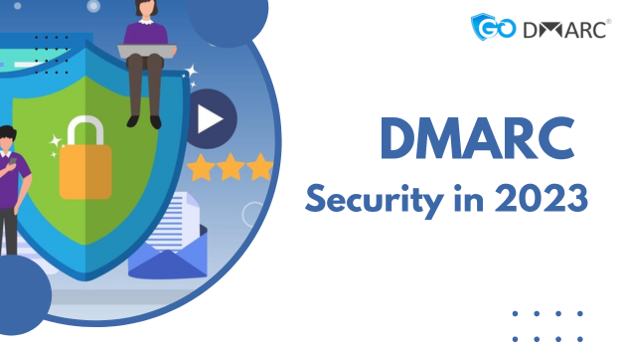Email remains a critical communication channel for businesses, but it’s also a top target for cybercriminals seeking to steal sensitive information or spread malware. DMARC is an email authentication protocol that helps protect against email spoofing and phishing attacks.
In 2023, DMARC is expected to continue playing a crucial role in email security, as organizations prioritize protecting their customers and stakeholders from email-based threats. Here, GoDMARC will explore DMARC security in 2023 and the trends and challenges that organizations can expect to face as they implement this critical protocol.
Understanding DMARC in 2023
DMARC takes these two authentication protocols a step further by providing a policy framework that tells email receivers how to handle emails that fail authentication. DMARC policies can be set to either “none,” “quarantine,” or “reject.” A “none” policy means that the email receiver should take no action if an email fails authentication. A “quarantine” policy means that the email should be placed in the recipient’s spam or junk folder. Finally, a “reject” policy means that the email should be rejected outright, and not delivered to the recipient’s inbox.
In 2023, DMARC is expected to become even more critical in email security as organizations continue to implement it to protect their brands and customers from email-based attacks. With the rise of remote work and the resulting increase in email traffic, the need for strong email authentication protocols like DMARC is more significant than ever. DMARC provides organizations with a way to protect their brands and customers from email spoofing and phishing attacks, which can be costly both in terms of financial loss and reputational damage.
How DMARC Offers Security in 2023?
DMARC is expected to continue offering robust email security in 2023, as organizations increasingly prioritize protecting their customers and stakeholders from email-based threats. Here are some ways DMARC can offer security in 2023:
- Enhancing Authentication: DMARC is an email authentication protocol that helps ensure that email messages are coming from legitimate senders. It uses SPF (Sender Policy Framework) and DKIM (DomainKeys Identified Mail) to verify the authenticity of the sender’s domain. DMARC builds on these protocols by providing a policy framework for email receivers to take action if an email message fails authentication, such as rejecting or quarantining the message.
- Protecting Against Email Spoofing: Email spoofing is a technique used by cybercriminals to impersonate a legitimate sender’s email address. DMARC helps protect against email spoofing by allowing email receivers to verify the authenticity of the sender’s domain and take action if the email fails authentication. This helps prevent phishing attacks and other email-based threats that can compromise sensitive information or damage brand’s reputation.
- Monitoring and Reporting: DMARC provides organizations with visibility into how receivers are handling their email messages. It allows organizations to monitor and analyze email traffic to identify any unauthorized use of their domain name. This helps organizations take proactive steps to prevent email-based attacks and improve their email security posture.
- Improving Email Deliverability: DMARC policies can be set to reject or quarantine unauthorized emails, ensuring that only legitimate emails are delivered to recipients’ inboxes. This helps improve email deliverability and reduces the chances of legitimate emails being marked as spam or phishing attempts.
- Compliance Requirements: Some industries, such as finance and healthcare, have compliance requirements that mandate the use of email authentication protocols like DMARC. Implementing DMARC can help organizations comply with these regulations and show their commitment to cybersecurity best practices.
Protect Your Brand and Secure Your Email Channels with Our Comprehensive DMARC Services
DMARC offers robust email security in 2023 by enhancing authentication, protecting against email spoofing, monitoring, and reporting, improving email deliverability, and ensuring compliance with industry regulations. By implementing DMARC, organizations can safeguard their customers and stakeholders from email-based threats, protect their brand reputation, and improve their email security posture.
GoDMARC offers comprehensive DMARC services to help organizations protect their brand reputation, secure their email channels, and improve their email deliverability. Our team of experts can help you implement DMARC policies, monitor and analyze email traffic, and provide ongoing support to ensure that your organization is protected from email-based threats. With our DMARC services, you can have peace of mind knowing that your organization is complying with industry regulations, safeguarding sensitive information, and demonstrating your commitment to cybersecurity best practices.





